BSB 171 Biology I, SEA-PHAGES, kicks off
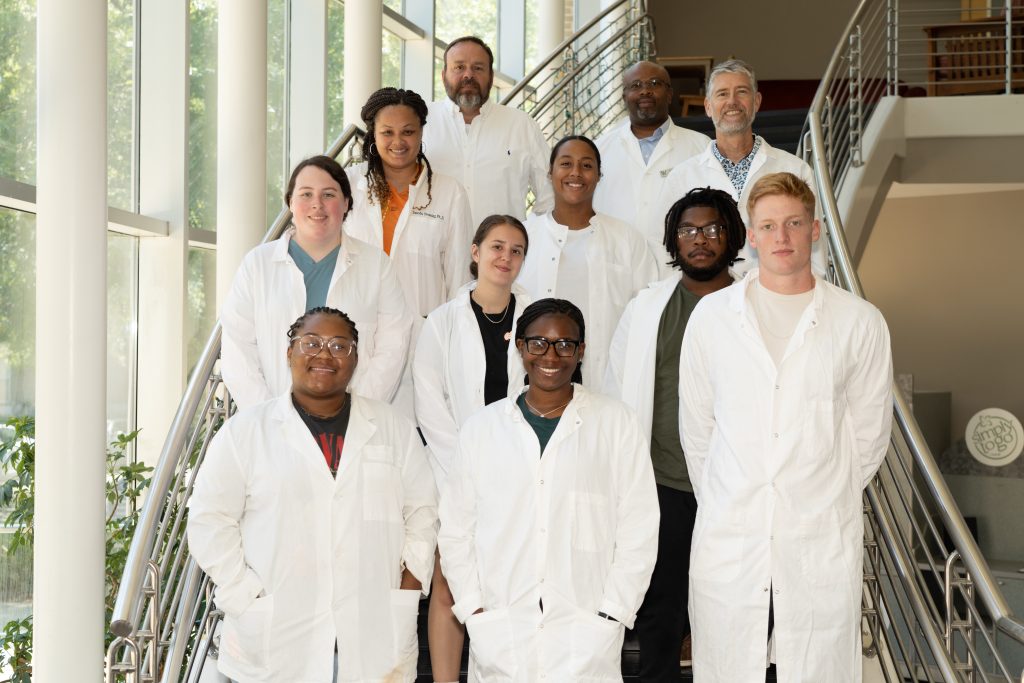
This semester, the Dept of Sciences and Mathematics is debuting a new course, BSB 171 Biology I. The course is part of the SEA-PHAGES consortium overseen by the Howard Hughes Medical Institute.
SEA-PHAGES is an acronym for Science Education Alliance – Phage Hunters Advancing Genomics and Evolutionary Science. In the lab component of the course, each student will spend the semester isolating a type of virus called a bacteriophage and then determining if it is a previously-undiscovered type of that virus. If it is a previously-unknown bacteriophage, the student who isolated it gets to name it and deposit the information they collected about that virus in a national database.
Bacteriophage viruses are found everywhere in the environment. Each student will isolate their own bacteriophage from some local site of their own choosing.
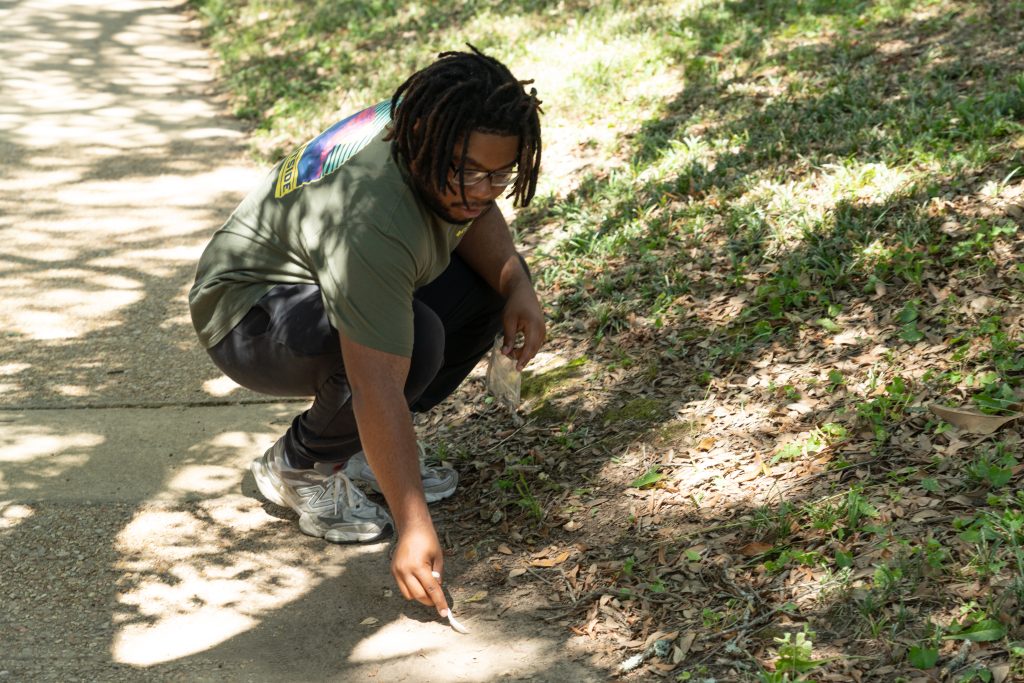
In their first lab of the semester, students practiced techniques they will be using in the course over the next several months.
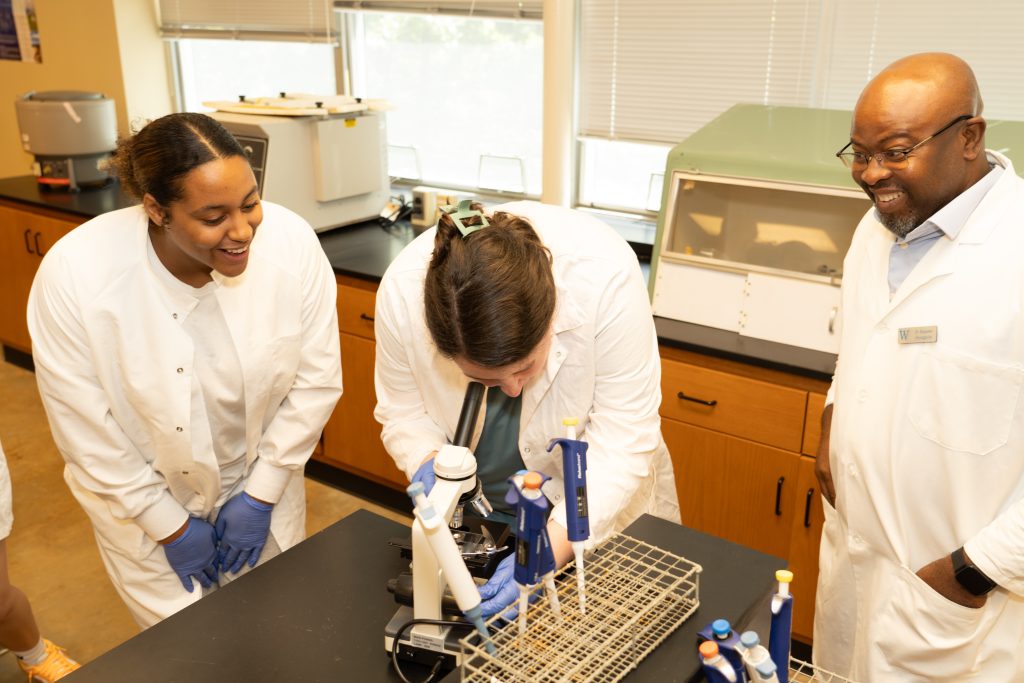
After collecting a bacteriophage-containing sample from somewhere in the local area, it is several weeks of lab work to isolate and characterize the virus, where the students will learn state-of-the-art microbiology and molecular biology techniques necessary for their virus work.
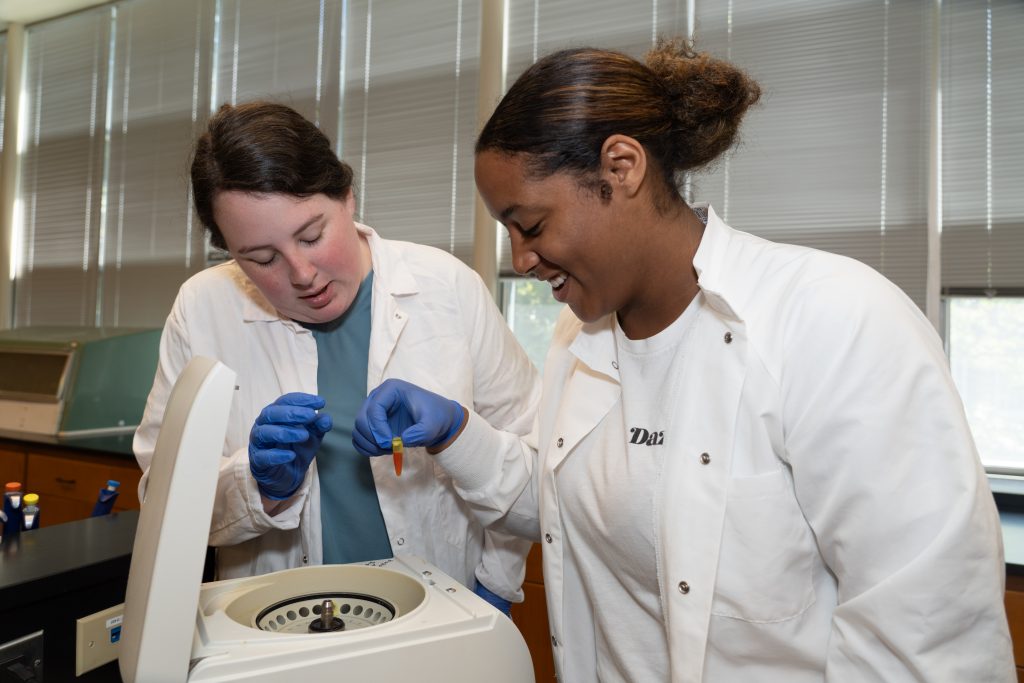
The fall 2024 section of BSB 171 consists of Honors College students from various departments earning their Enlight Core Curriculum science credits through this new course based on inquiry-based learning techniques.
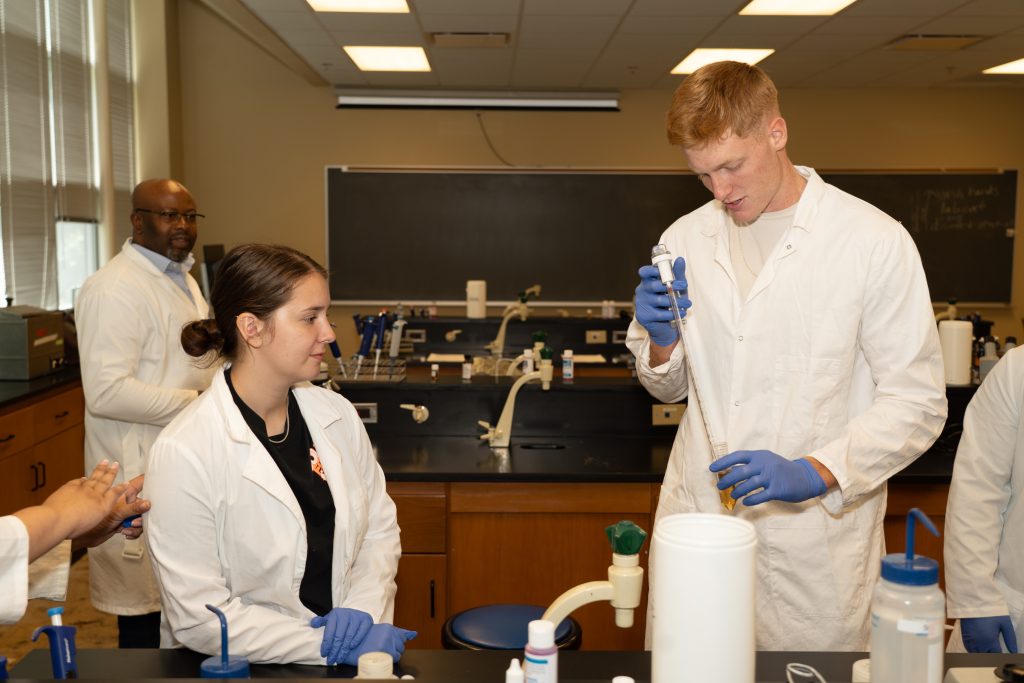
In future semesters, the Department of Sciences and Mathematics will expand BSB 171 (and its follow-up BSB 172 Biology II) and encourage students from all colleges across the university to take the course and learn biology while isolating their own virus.